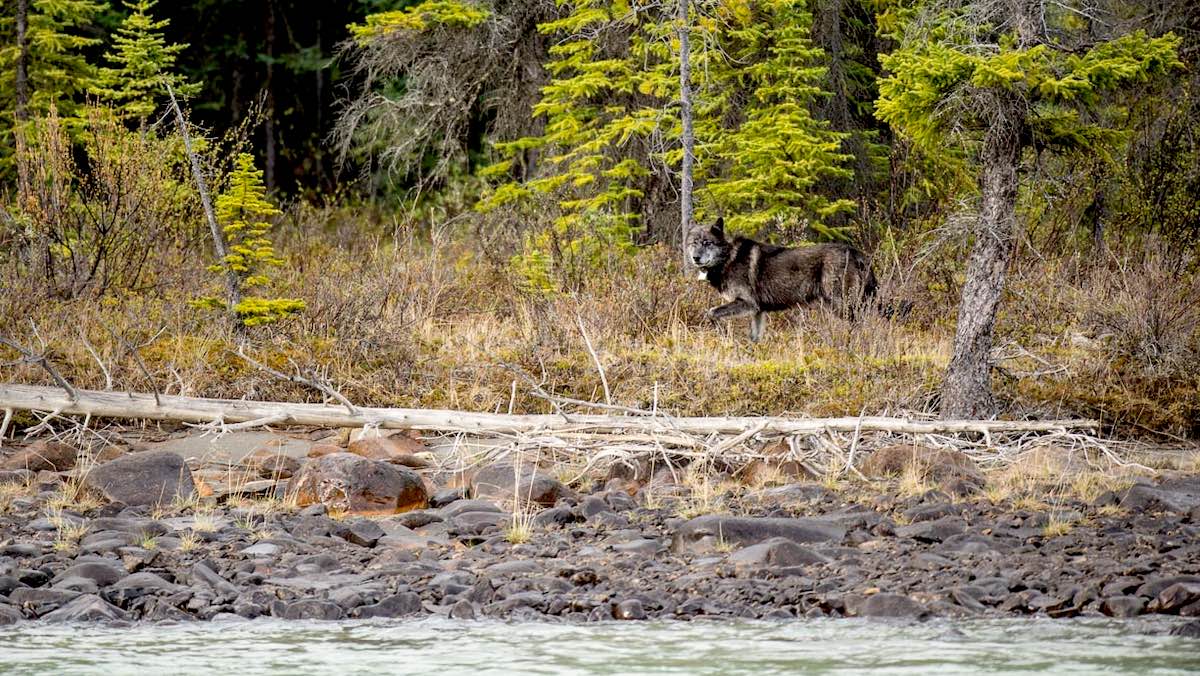Wolves Removed from Endangered Species List: Will More Hunts Follow?

From the Minnesota Valley National Wildlife Refuge on Thursday, Secretary of the Interior David Bernhardt announced that the federal government would remove gray wolves in the Lower 48 from protection under the Endangered Species Act. When (and if) this decision goes into effect, states will resume management, and some will likely begin to issue permits to hunt the apex predators.
“After more than 45 years as a listed species, the gray wolf has exceeded all conservation goals for recovery,” Sec. Bernhardt said. “Today’s announcement simply reflects the determination that this species is neither a threatened nor endangered species based on the specific factors Congress has laid out in the law.”
Alaska contains robust wolf packs that were not listed alongside the rest of the country in 1967. The Northern Rockies wolf population was delisted in 2008 and Montana and Idaho have held seasons since then, with Wyoming joining more recently. Those animals have spread naturally to Washington, Oregon, California, and Colorado, where populations still remain relatively low and hunting seasons are unlikely in the near future. Minnesota, Wisconsin, and increasingly Michigan, however, contain the vast majority of wolves in the contiguous United States with an estimated 4,000 individuals. Some Great Lakes hunters are eager to try a new pursuit, while mitigating the impact wolves have on other wildlife populations.
“Wolves belong on the landscape, and they should be there in sustainable numbers. I don’t view that as a debatable point,” said Steven Rinella, MeatEater founder and Michigan native. “But now that we’ve accomplished that, it’s time for state management that allows regulated hunting and trapping for wolves. That’s the only viable path toward a sustainable relationship between wolves and humans who share a landscape and compete for wild game resources.”
The Wisconsin DNR suggested in a statement that they would soon resume hunting seasons like those held in 2012-2014: “The Wisconsin Department of Natural Resources welcomes the responsibility of again managing wolves in Wisconsin. The department has successfully done so for decades and will continue to follow the science and laws that influence our management. All wolf management, including hunting, will be conducted in a transparent and deliberative process, in which public and tribal participation will be encouraged.”
Minnesota’s DNR was more tepid in their response, not signaling whether they would seek to allow hunting any time soon.
Conservation groups ranged in their responses from full-throated support to questioning the scientific support and timing of the decision. The Boone & Crockett Club called the delisting “overdue,” while the National Wildlife Federation suggested it was premature. Some see politics at play in rural battleground states only days before the Nov. 3 election.
Mark Norquist is a Minnesota conservation leader and the founder of Modern Carnivore. He’s been hunting in the state for 40 years and said that in that time he’s seen a significant increase in the wolf populations.
“Personally, I don’t ever plan to hunt wolves, but I strongly support a wildlife management plan that uses sound science in the decision-making process, and includes hunting as one of the management tools,” Norquist told MeatEater. “We’re in the middle of the 2020 hunting season but also a highly-charged political season. While I’m sure this announcement from the USFWS isn’t immune from politics, I do feel like it’s a sound decision based on science.”
The final delisting decision will go into effect in 60 days, barring any judicial interference. Lawsuits from environmental organizations are certain to begin flying and could return wolves to federal management as similar suits have in the past with wolves and grizzly bears. Mexican wolves remain protected under the ESA.
“Any time an animal in existence comes off the list, it’s a win for wildlife. Minnesota and Wisconsin wildlife agencies have been working successfully with wolves for a long time. They are the experts. They know how to make sure wolves continue to flourish as part of the state management plan as they did with a federal management plan. There is no doubt in my mind this is a win for wolves and a win for all wildlife in the Great Lakes States.”
Feature image via Tony Bynum.




